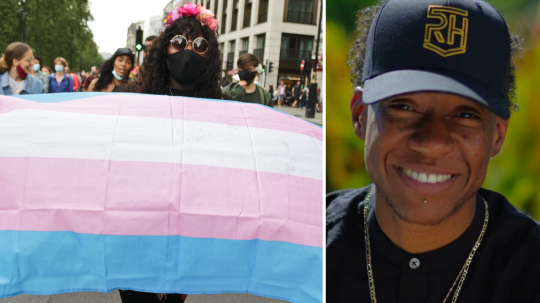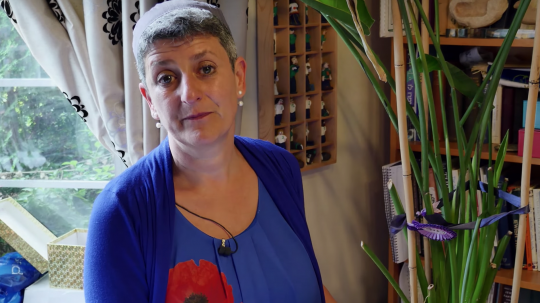Trans people in England and Wales will continue to be “forced through harmful processes” if they wish to have their gender recognised under a law the UK government has decided not to update, human rights groups have warned.
Amnesty International, Liberty and Human Rights Watch have issued a joint statement after equalities minister Liz Truss on Tuesday announced the government’s response to a consultation on reforming the 2004 Gender Recognition Act (GRA).
Trans people have long criticised the process of obtaining a GRC as invasive, outdated and distressing.
Earlier this year EachOther heard from Dee Livesey, 57, who spoke of how her GRC transformed her life after she was diagnosed with Parkinson’s disease. Without it, her estranged family members could potentially have laid claim to her estate.
She described the process of obtaining the certificate as “the hardest thing [she’s] ever done”.

Dee Livesey (right) and her wife Estelle. Credit: Courtesy of Dee Livesey
In 2017, the government launched a consultation on updating the Act – amid calls for reform – receiving more than 108,000 responses including from 7,000 trans people.
The government today announced it feels the existing legislation contains “proper checks and balances” and “also support for people who want to change their legal sex”.
But it added that it will make the process of applying for a GRC “kinder and more straightforward,” and will address “the main concerns trans people themselves tell us they have about it”.
About 38% of respondents said the process was “too bureaucratic,” while 34% say it is too expensive, Truss added.
In response, the government will “place the whole procedure online” and reduce the £140 fee to a “nominal amount”.
Liberty, Amnesty International and Human Rights Watch called the government’s decision a “missed opportunity” in a joint statement.
“Research has found that medical barriers to gender recognition for trans people are unnecessarily intrusive and can harm their physical and mental health.
“With medical requirements still in place, trans people will continue to be forced through harmful processes to have their gender legally recognised.”
It added: “After a three year wait, we’re presented with a few administrative changes, which, whilst a step in the right direction, only scratch the surface of what we need to ensure all trans and non-binary people can live equally, freely and fully.”
Meanwhile, the LGBT charity Stonewall described the development as “a shocking failure of leadership”.
Labour’s shadow women and equalities secretary Marsha de Cordova told the Guardian the government has “let trans people down at the last minute”.
“Labour is committed to equality and inclusion for trans people and we continue to support updating the Gender Recognition Act to introduce self-declaration for trans people,” she added.
Critics of the idea of self-identification welcomed the news – including Woman’s Place UK, a group which has long voiced concerns over GRA reform.
The group believes that a “person’s ‘sex’ is not the same as ‘gender identity’”, and an overhaul could impede women’s access to women-only spaces.
However, as it currently stands, the GRA does not include provisions concerning single-sex spaces. Instead, this area is covered by the Equality Act 2010.
Trans rights campaigners have responded to the announcement by promoting a petition to reform the Gender Recognition Act, which has so far gained more than 100,000 signatures – which means it must be considered for debate by MPs.





